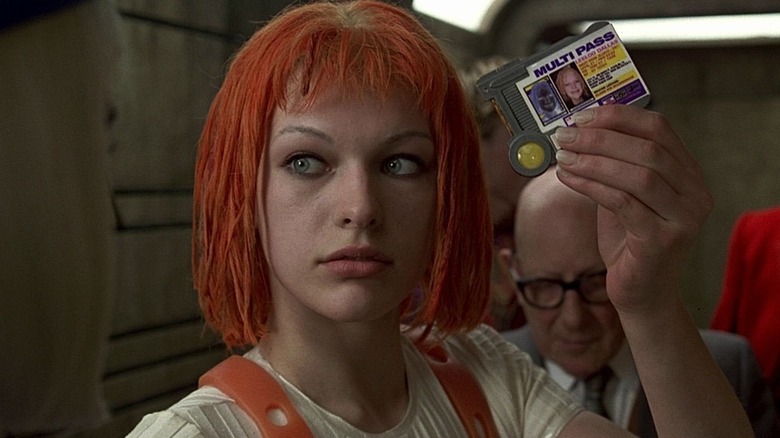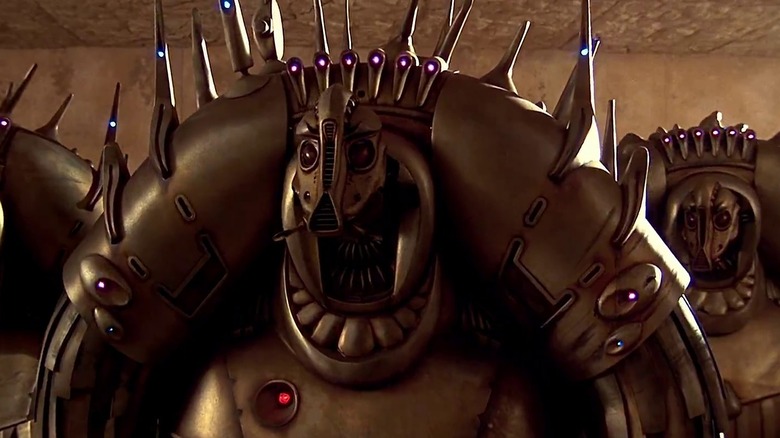
J.R.R. Tolkien never visited Finland, but as a lexicographer and philologist, the Finnish language fascinated him. Not only did Tolkien adapt a tale from the Elias Lönnrot's Karelian's "The Kalevala" (1835), often called the Finnish national epic -- Tolkien's book was called "The Story of Kullervo" -- but he famously derived Quenya, the High Elvish language from the "Lord of the Rings" books, from the syntax of Finnish. Deep-cut "Lord of the Rings" fans may have learned some Quenya, as well Sindarin, which Tolkien derived from Welsh, and Khudzul, derived from Hebrew and other Semitic languages. And while there are references to fictional countries and languages throughout human literature (Sir Thomas Moore was writing about Utopian languages way back in 1516), Tolkien is often cited as the first author to invent an entire language, complete with syntax and vocabulary. Fun with words: One who invents fictional languages is called a conlanger.
Since the first publication of "The Fellowship of the Ring" in 1954, several ambitious authors and screenwriters have attempted to play the same linguistic games as Tolkien (insert the tired old "cunning linguist" pun here, if you must). The most famous is probably the Klingon language from "Star Trek: The Motion Picture," invented by Marc Okrand, which has several dictionaries, instructional audio lessons, and even classic literature. Okrand also invented the Atlantean language seen and heard in the 2001 animated film "Atlantis: The Lost Empire." In 1972, author Richard Adams invented several phrases in Lapin, a language spoken by rabbits in his novel "Watership Down." Professor Paul Frommer invented both the Na'Vi language for James Cameron's 2009 film "Avatar" and the Barsoomian language for the 2012 film "John Carter."
For his 1997 film "The Fifth Element," writer/director Luc Besson also invented a language -- simply called The Divine Language -- for the character of Leeloo, played by Milla Jovovich.
Lexicon Devil
"The Fifth Element" is a colorful, ambitious, and delightfully kooky rendition of pulp sci-fi clichés about a colossal negative space wedgie that returns to Earth every 5,000 years, only to be repelled by a race of intermittently visiting divine alien beings called The Mandoshawan. In the future, the Evil is returning, and a rough-hewn cabbie named Corbin Dallas (Bruce Willis) must team up with the visiting divine alien named Leeloominaï Lekatariba Lamina-Tchaï Ekbat De Sebat, or Leeloo for short, in order that she may collect four magical stones and use her own in-born perfection to repel the death planet. Over the course of the film, Corbin and Leeloo fall in love, even though he only speaks English, and she only speaks the Divine Language. To stress her alien nature, Besson elected to leave Leeloo's language unsubtitled, leaving Corbin off-balance, but allowing both he and audiences to be astonished by Jovovich's authenticity and childlike wonderment with the Earth.
Besson reportedly invented a whole dictionary of Divine Language vocabulary words and gave it to Jovovich to memorize. Various reports have said there are either 400 or 500 words in this language. In order to practice the language, Besson and Jovovich would have conversations on the set of "The Fifth Element." This was a tactic later employed by James Cameron and his Na'Vi speaking cast members on "Avatar." Jovovich is already multilingual -- she speaks English, French, Serbian, and Russian -- so grasping a new syntax was easy for her, at least easier than for people who are monolingual. In an interview with i-D, however, Jovovich admitted to forgetting the Divine Language after production. Film actors, she said, are very good at memorizing lines and then forgetting them once they are no longer needed.
Learn The Divine Language Today!

While Besson has never published a Divine dictionary, enterprising fans and ambitious conlangers have compiled their own dictionaries based on what Jovovich says on screen. These fan dictionaries have expanded on the original canonical catalogue exponentially, now sometimes including thousands of words. There is even a Divine Language app that can translate from English, derived from a free, downloadable Divinian dictionary written by T. Leah Fehr.
Fun coincidence: In 1997, Jovovich played a divine alien. In 1994, her debut pop album -- in the vein of Kate Bush or Tori Amos -- was called "The Divine Comedy," and on it, she sang a song called "The Alien Song (For Those Who Listen)." This likely has nothing to do with "The Fifth Element," or the Divine Language, but this kind of stuff is fun to speculate over.
Read this next: 12 Awesome Sci-Fi Movies That Never Got Sequels
The post Leeloo's Language In The Fifth Element Is More Real Than You Think appeared first on /Film.
0 Commentaires